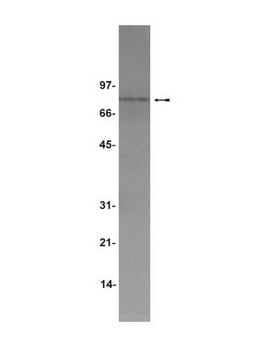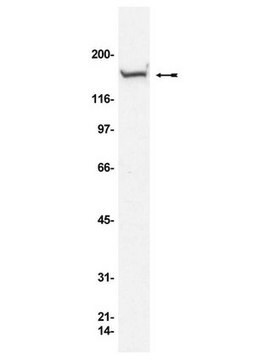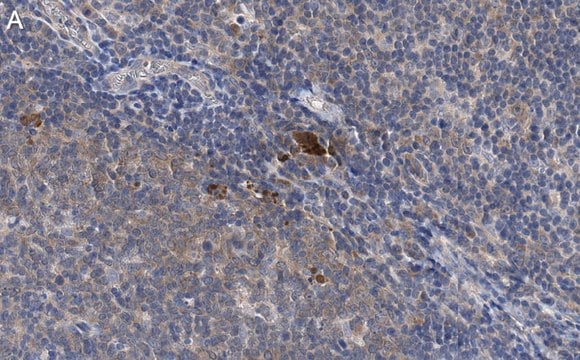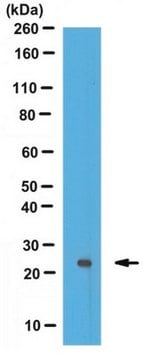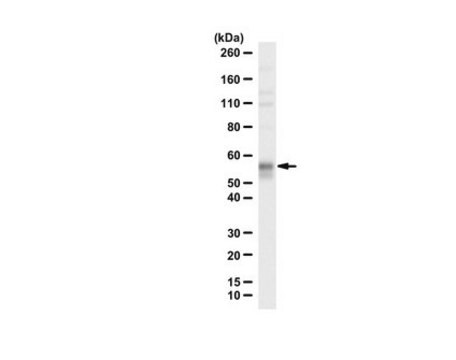SAB4200141
Anti-Rictor antibody produced in rabbit
~1-2 μg/mL, affinity isolated antibody
Sinónimos:
ANTI-Pianissimo, ANTI-Rapamycin-insensitive companion of mTOR, ANTI-TORC2-specific protein AVO3, Anti-RPTOR independent companion of MTOR, complex 2, AVO3
About This Item
Productos recomendados
biological source
rabbit
conjugate
unconjugated
antibody form
affinity isolated antibody
antibody product type
primary antibodies
clone
polyclonal
form
buffered aqueous solution
mol wt
~190 kDa
species reactivity
human, rat, mouse
packaging
antibody small pack of 25 μL
concentration
~1-2 μg/mL
technique(s)
immunohistochemistry: 5-10 μg/mL using a working concentration of 5-10 ug/mL is recommended using heat-retrieved formalin-fixed, paraffin-embedded rat testis sections and biotin / ExtrAvidin Peroxidase staining system.
immunoprecipitation (IP): 5-10 μg using a working amount of 5-10 μg is recommended using lysates of human HeLa cells.
western blot: 1-2 μg/mL using a working concentration of 1-2 μg/mL is recommended using whole extracts of mouse C2C12 cells.
UniProt accession no.
shipped in
dry ice
storage temp.
−20°C
target post-translational modification
unmodified
Gene Information
human ... RICTOR(253260)
mouse ... rictor(78757)
rat ... rictor(310131)
General description
Specificity
Immunogen
Application
Biochem/physiol Actions
Physical form
Disclaimer
¿No encuentra el producto adecuado?
Pruebe nuestro Herramienta de selección de productos.
Storage Class
10 - Combustible liquids
flash_point_f
Not applicable
flash_point_c
Not applicable
Certificados de análisis (COA)
Busque Certificados de análisis (COA) introduciendo el número de lote del producto. Los números de lote se encuentran en la etiqueta del producto después de las palabras «Lot» o «Batch»
¿Ya tiene este producto?
Encuentre la documentación para los productos que ha comprado recientemente en la Biblioteca de documentos.
Nuestro equipo de científicos tiene experiencia en todas las áreas de investigación: Ciencias de la vida, Ciencia de los materiales, Síntesis química, Cromatografía, Analítica y muchas otras.
Póngase en contacto con el Servicio técnico

